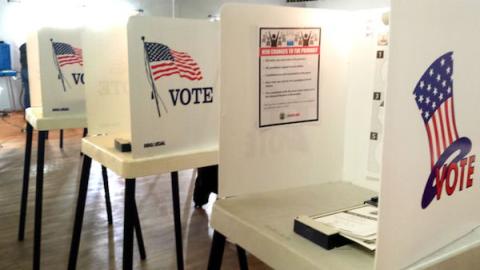Notable Republican and Democratic leaders in Rhode Island have come together to change how the state conducts its primary elections. The effort, called the People’s Primary, seeks to bring more competition and participation in state elections.
“It has become obvious over the years that our primary elections are the most important in defining how we will be governed. The results over the last decade have indicated very serious problems,” said Hassenfeld Center for Leadership Founder Gary Sasse, during an interview for IVN.
Sasse is a prominent voice within the People’s Primary. He joined several public figures in the state, including former Rhode Island Supreme Court Justice Robert Flanders and former chair of the state Democratic Party, Guy Dufault, to look deeper into what can be done about primary elections.
Rhode Island conducts a semi-closed partisan primary system in which Republicans vote on a Republican ballot, Democrats vote on a Democratic ballot, and independent voters (the largest group of registered voters) can choose between those two options, though will temporarily be registered with the party they choose.
In other words, the right to participate is conditioned on affiliation with a private political party, even if temporary. Under this system, the state has not only seen a sharp decline in competition, but voter engagement as well.
“Of the 113-member General Assembly, only 14 are Republican,” said Guy Dufault, “and they can’t even win in Trump seats. We need to look at it because it has fallen off a cliff.”
Dufault has come full circle on the desire for reform. When he was chair of the state Democratic Party he advocated for a closed system in which only party members could participate and only on their party’s ballot. Now, he sees the need for something that will encourage more voter participation across the board.
Sasse, Dufault, and the other leaders behind People’s Primary published a white paper on the full scale of the problem in Rhode Island. The group found, for instance, that under the semi-closed primary, less than 20% of voters who cast a ballot in the 2020 general election voted in that year’s primary.
The white paper also notes that low turnout among registered unaffiliated voters can be partly explained by campaign messaging. Due to the partisan nature of the primary system candidates tend to direct their outreach to partisan voters even though Rhode Island is one of only 10 states with more registered unaffiliated voters than party members.
Low participation can also be linked to the dismal state of political competition in Rhode Island. Elections are so safe for the incumbent or majority party in a district that an average of 45% of General Assembly seats went uncontested in the last decade.
“If you don’t give voters a choice, then that is the most blatant form of voter suppression there is,” said Sasse. “With no choice, what are voters thinking about? What alternative do they have to get the government to address their concerns?”
He explained that the white paper was not meant to be prescriptive. It was meant to provide a foundation for the primary reform movement. It does not focus solely on a single solution. Instead, it offers three potential reform solutions for lawmakers to consider:
- A nonpartisan top-two primary in which all candidates and voters participate on a single primary ballot (e.g. the system in place for most state elections in California);
- A top-four primary that combines a single-ballot nonpartisan primary with ranked choice voting in the general election (currently used in Alaska); or
- An open partisan primary in which all eligible voters can choose the party ballot they want, regardless of their own political affiliation.
Dufault said many lawmakers on both sides of the aisle are open to reform. The state senate has set up a commission to look at the issue. The House side has an active bill for a top-two primary. And, the People’s Primary group plans to be involved throughout the process.
“We want to try to get something for the ‘24 cycle, but at worst for the ‘26 cycle,” he remarked. “The members of our committee are well respected throughout the state, and I think we will get a fair shake in the General Assembly.”
“People ask me, ‘Why would they want to change a system that benefits them?’ They’d want to change it because this is a very good opportunity for them to do something the public wants. We have polling data that backs it up, and they’re paying attention to it. They realize the public is thirsty for change.”
Sasse added that he also feels positive they can work the leadership in the legislature to move the needle on reform. He said their polling data found that 54% of Democrats, 63% of Republicans, and 61% of independents support nonpartisan primary reform.
